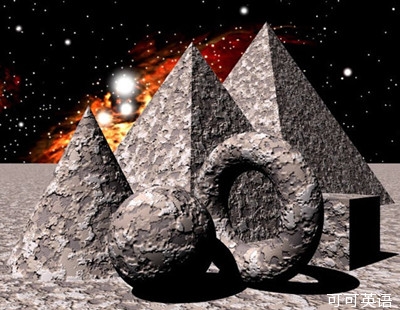Our universe has long passed for a 13.7-billion-year-old, but it turns out it's really a bit more elderly. So says new data from the European Planck satellite.
我们的宇宙早已有137亿年的历史了,但欧洲太空总署发射的普朗克卫星收集的数据证明宇宙的实际年龄更长。
“Compared to the previous best measurements, the universe is a little older, 13.8 billion years.” U.S. project scientist Charles Lawrence of NASA's Jet Propulsion Laboratory, in a March 21st press briefing.
“与之前最精确的观测相比,宇宙的年龄实际更长,有138亿年。”美国宇航局喷气推进实验室的项目科学家查尔斯·劳伦斯在3月21日的新闻发布会上说道。
 “It's expanding a little more slowly. There's more matter, both the kind that we're made of that we can see and the dark kind that we can't see, but that has gravity to pull things around.”
“It's expanding a little more slowly. There's more matter, both the kind that we're made of that we can see and the dark kind that we can't see, but that has gravity to pull things around.”
“宇宙膨胀的速度在减慢。物质却越积越多,由我们看得见的、组成我们这个世界的物质在增多,我们看不见的、但有强大的引力吞噬周围物体的暗物质也在增多。”
The Planck satellite maps the cosmic microwave background, the faint afterglow of the big bang. And that lets cosmologists look back to the very dawn of the universe.
普朗克卫星绘制了宇宙微波背景辐射图,这是大爆炸留下的微弱余辉,让宇宙学家回顾了宇宙的黎明时期。
“The variations from place to place in the map that Planck has made tell us new things about what happened just 10 nano-nano-nano-nanoseconds after the big bang when, in a gazillion times less time than it takes me to say this, the universe expanded by 100 trillion trillion times.”
“普朗克绘制的辐射图地区之间存在差距,这告诉人们大爆炸开始后10亿分之一秒内发生了什么。在极短的时间内,甚至比我说这句话的时间还短,宇宙开始以100万亿倍的速度膨胀。”
It's been said that “the universe is not only stranger than we imagine, it is stranger than we can imagine.”
有人说过“宇宙不仅比我们想象的陌生,它比我们能够想象的还要陌生。”
原文译文属可可原创,未经允许请勿转载!
 “It's expanding a little more slowly. There's more matter, both the kind that we're made of that we can see and the dark kind that we can't see, but that has gravity to pull things around.”
“It's expanding a little more slowly. There's more matter, both the kind that we're made of that we can see and the dark kind that we can't see, but that has gravity to pull things around.”











